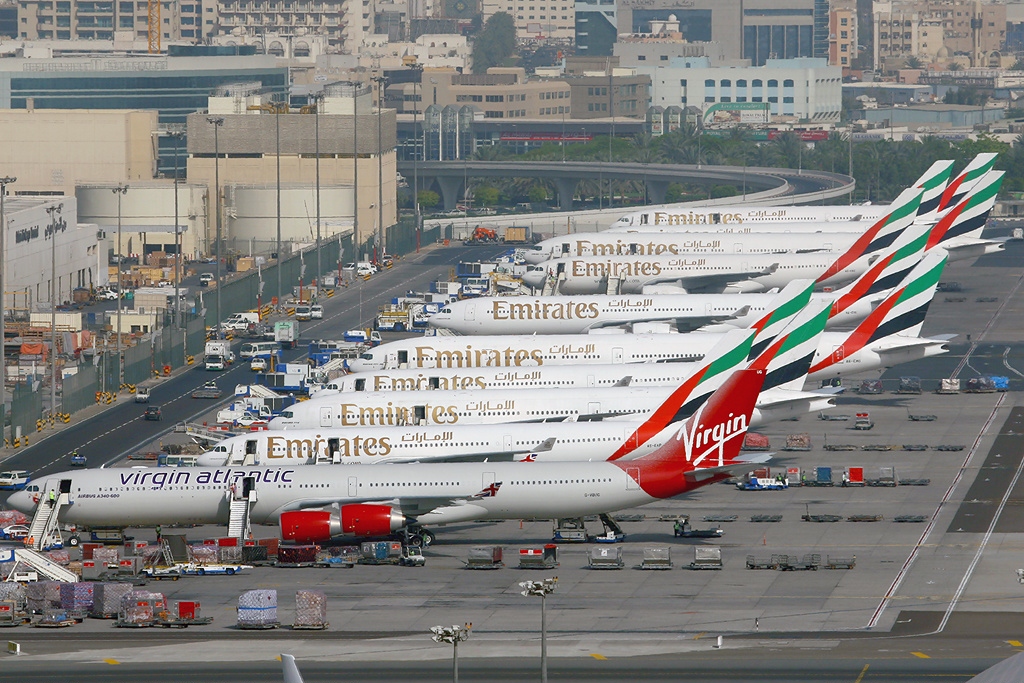Is the Russian back to Dubai?
By egor Tuesday, 18 October 2016 9:10 AM

In the past, Russian vacationed in Dubai on a luxurious scale: opting for comfortable accommodation in 5-star hotels, and allotting over half their travel budget, alongside the Chinese tourists, to shopping. With the fall of the Ruble and the rise in price of tour package, the cost in terms of currency for Roubles has changed. This has seen a decrease in Russian tourists but also resulted in increased efforts of restaurateurs, hoteliers and retailers to attract Russian-speaking visitors to Dubai. Therefore, the question whether Russian tourists will return to Dubai is a very valid one.
Unlike Europe where Russian tourists are often met with a snooty attitude about their "terrible taste" in clothing("tracksuits and bling"), their "horrible table manners" (they do not just eat for dinner but also stock up for the future, bringing food from the restaurant) Russian tourists in Dubai are unfailingly greeted by sincere, attentive customer care and high-class service, proving that every wish of a guest is a royal command, in the traditional Arabian hospitality. That is why almost half of Russian guests in Dubai are return tourists. They choose the Emirate for its high degree of safety, comfort, its clean beautiful beaches and tranquility.
Dubai has its own unique magic, which, together with its tourist attractions combines to draw people to its shores again and again, unlike other tourist destinations. In fact return visitors account for a sizeable part of the tourist traffic to Dubai as people come here for its exciting shopping options during mega events like DSF. As Dubai’s gold is rated highly across the world for its purity, they also come to shop for special occasions like weddings.
So there is no question of satiety when it comes to visiting Dubai as it pulls one back like a magnet. In addition, the emirate has traditionally been seen as a place offering a high quality of life and the promise of an interesting vacation with year-round festivals and entertainment and sports events besides the possibility of low-cost shopping.
Dubai’s swanky shopping malls are packed with expensive collections of the world’s most prestigious brands, attracting lavish spending by die-hard foreign shopaholics, a tone set by tourists from Russia several decades ago. But after the fall of the Rouble, Russian tourists appear in no hurry to buy all of the latest collections and last year, the drop in Russian traffic cost Dubai Duty Free $50 million in sales, despite the fact that average daily sales at these stores range from $4.6 million to $4.9 million.
But luxury retail was not the only sector which was affected by the drop in Russian tourists.
The hospitality sector too suffered the backlash. As per analysis done by JLL, one should pay attention not only to the abundance of new establishments, restaurants and cafes, but also to the availability of tables that were previously occupied by Russian holidaymakers. This decrease in Russian tourist traffic due to the weakening of the Rouble, experts pointed out, caused the stagnation of the global tourism market, including Dubai. Since the middle of last year the flow of tourists from Russia to Dubai fell by 30-40%. The Russians continue to come and stay in Dubai for an average of 10 days, but the number of tourists has decreased. For example even in 2012, the Russians set record rates of visiting the emirate, and in 2014 in Dubai, according to tour operators, 350-400 thousand Russians visited Dubai.

The Department of Tourism and Commerce Marketing (DTCM) in Dubai believe that these successes at the time could be attributed to the increase in the number of flights to Russia and CIS nations. If in 2012, the airline made 48 weekly flights from Russia, then in October 2014 they became 124.
The aviation industry as a high precision thermometer determines the "weather" of the tourism market, and news feed of recent weeks shows that air carriers are preparing to bring in a new wave of Russian tourists Dubai.
On October 1, 2016 Emirates airline added its flagship airliner A380-800 on one of the two daily flights on the route Moscow - Dubai. The total number of seats on these routes sees an immediate increase of 23%. In March 2016 Emirates and S7 Airlines concluded a code-share agreement for more than 30 S7 routes to cities in Russia, offering convenient connections to Domodedovo.
Yet another Dubai-based carrier Flydubai has resumed flights from Kazan to Dubai, which will be operated twice a week - on Wednesdays and Fridays. It also announced the launch of a new direct flight from Vnukovo International Airport to Dubai on Wednesdays and Saturdays.
From October 30, the Russian airline "Ural Airlines" has launched additional flights to the UAE from Ekaterinburg to Dubai on Tuesdays, Fridays and Sundays.
Finally, the leader of the Russian "Aeroflot" airline launched a second daily flight from Moscow to Dubai from mid-September for the traditional holiday season.
According to statistics, the demand for vacation resorts in the UAE has traditionally increased during the autumn-winter period. Besides Dubai airport - one of the largest air hub, where you can fly anywhere in the world, the UAE Government is also not sitting idle by waiting for its tourists to come, but has taken steps to simplify the visa formalities.
Transit passengers can avail of a 96-hour visa at UAE airports irrespective of the airlines they are flying in. Previously, such a visa was given only to passengers flying on UAE airlines. However, they have to meet certain criteria such as the duration between the two trips should not be less than 8 hours and the two trips should not be less than 8 hours and the two trips should be to different destinations. So for those passengers on-route to a third country and whose docking period exceeds 8 hours can apply for a transit visa for 96 hours and make reservations at a local hotel too.
Apart from this Dubai has actively started to develop its 3 and 4 star hotel segments by introducing tax relief opening up this budget option and making it more attractive for tourists visiting the emirate.




























Add new comment